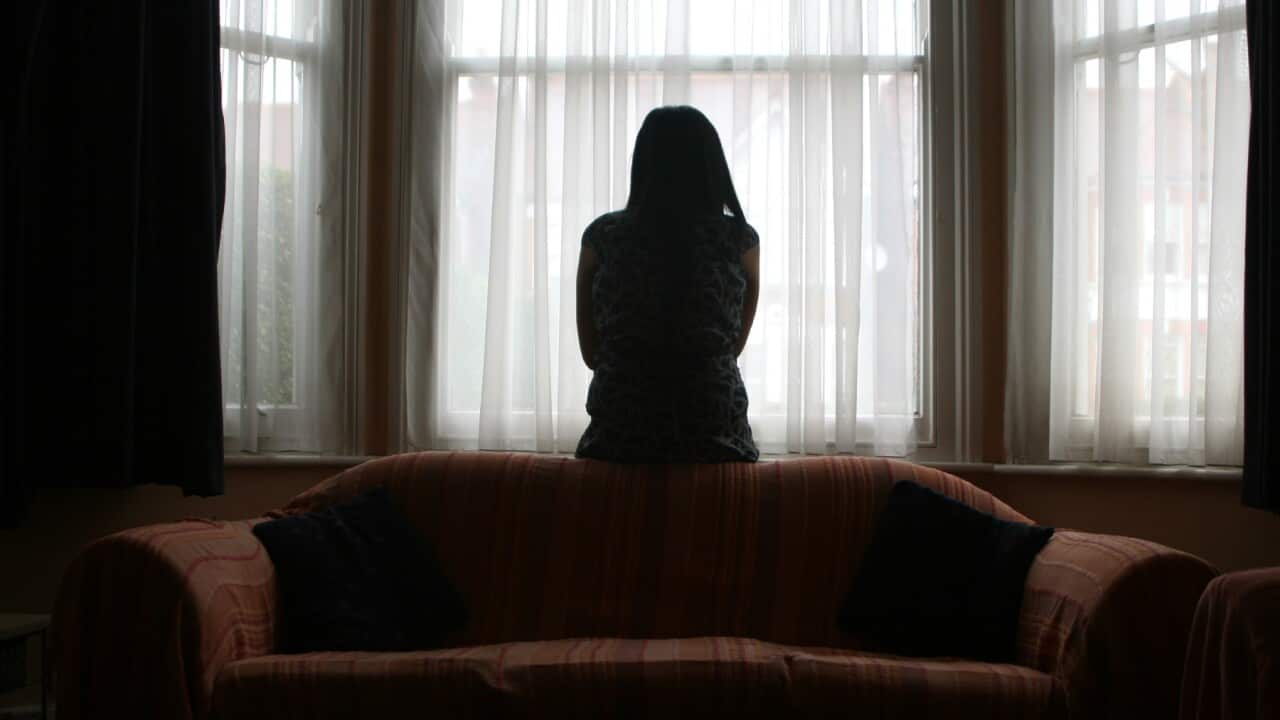Legal and sexual violence experts have cautioned against using “consent apps” to tackle sexual assault after NSW Police Commissioner Mick Fuller said he was considering whether technology could help police address the issue.
Mr Fuller floated the idea of an app that allows people to record sexual consent in an interview with the on Thursday, but later conceded it may not be the right answer.
“Can technology bring people together and find love? Well clearly it is and perhaps it's an avenue in terms of trying to bring clarity and some respect to women,” he told journalists on Thursday, adding that the app would not be run by the government.
“I'm just suggesting, is it part of the solution? Now, maybe it's not. But if we don't do something, more and more women are going to come forward seeking justice for sexual violence.
"If the app never eventuates, or eventuates in 10 years' time, to me that's not that important. It's about what are the solutions out there ... we need to start talking to our kids about this, teachers need to do their part."
Over the past month, in Australian schools - prompting widespread discussion over the need for better sexual consent education.
Her advocacy led the , that will include information about respectful relationships, consent, and sexual abuse.
Mr Fuller said intimate violence against women was increasing every year and “consent was a common theme”.
But sexual violence and legal experts said the idea of an app was flawed, particularly as it would not account for people who have withdrawn consent or the context in which the consent was given.
"Consent is a dynamic process, you cannot assume that somebody has consented, or somebody has signed away their consent, then, later on, assume they are consenting to that ongoing activity. That's just consent 101," Hayley Foster, chief executive of Women's Safety NSW, told SBS News.
"There also needs to be an understanding right throughout the criminal justice system, that sexual assault takes place within a context of coercion, of grooming processes, of intimidation, force, and threat. Whether someone clicks an app is really neither here nor there."
Police recorded around 18,300 sexual assaults against Australians over the age of 15 in 2018, according to Australian Bureau of Statistics crime data.
Mr Fuller said he hoped an app would help keep people out of the justice system, which he described as a traumatic process for survivors.
"You're seeing the justice system overwhelmed quite often with the issue of consent," he said.
"If you have a two per cent success rate of the prosecutions that are only 10 per cent of the matters [brought to police], then we are failing both ways."
But Ms Foster said she wanted to see police focus on their role in upholding the criminal justice system, as opposed to diverting women away from making complaints.
"We would like to see some leadership from the police to suggest that they actually want to improve the [legal] system and make that system more accessible and more effective," she said.
Legal experts have also raised concerns such an app would end up being used as a tool to protect perpetrators in legal proceedings.
"In an app of this nature, there's the possibility that your consent at that stage could be used as evidence later on in legal proceedings in a case where you have in fact withdrawn your consent," Sydney Institute of Criminology director Andrew Dyer told SBS News.
"While this ... is intended to be a protection for the complainant, it seems to be something that the accused might be able to use in a criminal trial to excuse his or her conduct."
Independent Senator Jacqui Lambie has also questioned the practicality of an app, particularly if someone has “been on party drugs and was spewing into a bucket at the same time.”
“I don’t know how you're doing that, giving consent, if you can hardly speak or stand up,” she told Sky News on Thursday. “Teaching kids at an early age to say no and what consent means is a good start.”
Labor's police spokesperson, Lynda Voltz, said a conversation around "all options" was needed, but said signing an app doesn't imply someone has "consented of their own free will".
"Will signing an app mean that consent has been given and that sexual assault proceedings can't progress? That's questionable," she added.
NSW Premier Gladys Berejiklian refused to comment on Mr Fuller's suggestion during a media conference on Thursday, telling journalists it was not a "conversation that's going to last 24 hours".
If you or someone you know is impacted by family and domestic violence or sexual assault, call 1800RESPECT on 1800 737 732 or visit . In an emergency, call 000.
Readers seeking support with mental health can contact Beyond Blue on 1300 22 4636. More information is available at . supports people from culturally and linguistically diverse backgrounds.












